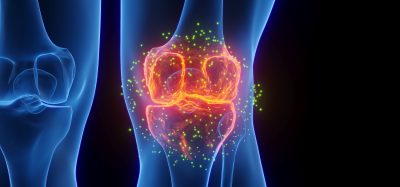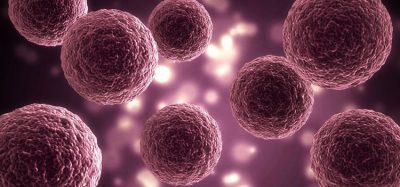Potential treatment target identified for Crohn’s disease
Posted: 9 August 2019 | Rachael Harper (Drug Target Review) | No comments yet
Researchers have identified a pathway in the immune system activated in Crohn’s disease which could lead to investigating new treatments.


A three-year study, focusing on the chronic inflammation that occurs in genetically susceptible individuals with Crohn’s disease (CD), has identified a pathway in the immune system activated in CD. According to the researchers, this could lead to investigating new treatments.
Using mouse models of CD, Fabio Cominelli, MD, professor of medicine at the School of Medicine and chief of gastroenterology at University Hospitals Cleveland Medical Center, who led the study, and his team investigated the interaction between a class of proteins called tumour necrosis factor and receptors on the surface, called Fn14.
Their goal was to see how the tumour necrosis factor (or TWEAK, for Tumor Necrosis Factor-like Weak Inducer of Apoptosis) and its cell receptor, Fn14, may play a dual role of both protecting the intestine from acute and chronic inflammation characteristic in CD and how it might also trigger it.
“During early inflammation, TWEAK/Fn14 activates to heal tissue damage,” said Cominelli. “However, during later, chronic inflammation, increased and persistent levels of Fn14 may lead to pathologic inflammation and fibrosis.”
To better understand the link between TWEAK/Fn14 and chronic inflammation, the team of researchers used mice bred to develop a CD-like disease and then genetically deleted the cell-surface receptor Fn14. The mice with genetically deleted Fn14 had less severe inflammation, while those with the Fn14 receptor had chronic intestinal inflammation and scarring.
The research team then used molecular diagnostics to analyse resected intestinal tissues from patients with and without IBD to test whether their findings in mice could be meaningful to CD in humans. The results showed significant TWEAK/Fn14 overexpression in tissue from patients with Crohn’s disease. Cominelli believes that blocking Fn14 pharmacologically using novel drugs and antibodies may ameliorate the inflammation and fibrosis in CD.
According to Cominelli, the study has implications for cancer treatment as well since chronic inflammation can lead to the initiation and growth of tumours in patients with IBD. Those patients are exposed to a risk of developing colorectal cancer that is directly proportional to the extent and duration of their disease.
The study was published in Cellular and Molecular Gastroenterology and Hepatology.
Related topics
Analysis, Disease Research, Protein, Research & Development, Targets
Related conditions
Crohn’s disease
Related organisations
University Hospitals Cleveland Medical Center
Related people
Fabio Cominelli MD








